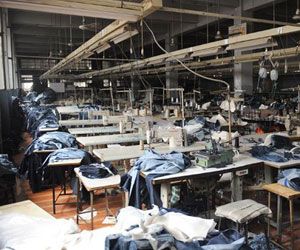ISLAMABAD: The representatives of international bodies on Wednesday decried that Pakistan is failing to improve human rights and workers conditions despite availing the benefits of GSP+ facility provide by the European Union (EU).
Speaking at a national multi-stakeholder consultation on GSP+ organised by the Pakistan Institute of Labour Education and Research, (Piler), EU Ambassador in Pakistan Androulla Kaminara said that Pakistan was among eight countries of world enjoying this facility.
“Pakistan entered the GSP+ scheme in 2014 which resulted in an increase in exports to European countries by over 50 per cent, with the textile sector being the main beneficiary,” Mrs Kaminara said. However, she noted that the situation of labour and human rights has not improved much.
“Over 3 million people are still living under the modern slavery in Pakistan and over 2m children are working as child labourers,” the EU ambassador said. “Similarly, unionisation rate of workers is very low at under 5pc,” she added.
However, she acknowledged the role of business associations for following with the demands of GSP + and assured that there will be no back tracking and EU would continue supporting Pakistan.
The GSP+ scheme is valid until 2023.
On the occasion, Country Director, International Labour Organisation (ILO) Ingrid Christensen said that child labour survey has not been carried out in for many years in Pakistan. ILO is working with the government of Pakistan over the matter, she added.
The last child labour survey was conducted in 1996 in Pakistan.
“Child labour is rampant in Pakistan as we have found everywhere that children are selling flowers and books on streets,” she highlighted.
Similarly she lamented that trade unions are facing interference in registration and there is lack of monitoring.
“One concern is lack of collective bargaining and dispute resolution mechanism in Pakistan,” the ILO country chief added.
While lauding the efforts of Pakistan for enactment of many simplified labour laws, she pointed out that implementation of labour laws remained a major challenge.
Labour inspections have been abolished in some jurisdictions in Pakistan and the respective provinces needed to clarify their positions over the decision, she added.
Published in Dawn, November 21st, 2019
















































